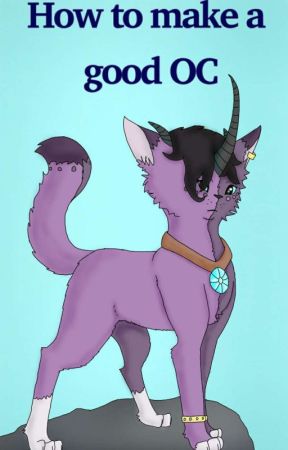Personality is one of the most important things when making a character. If they have no personality, or an inconsistent personality, then it can be hard to enjoy their story. If you mess it up, it can be hard to fix, because personality can detemine an entire story! And it isn't fixed by making them have no autonomy - a character just pushed around by convenient events to further the plot can mean the wrong character is the protagonist, or needs to be seriously reworked. Characters must make decisions every now and then, at least, for the story to be alive. And decisions are influenced by personality and life experiences.
So, how do you give the character a good personality set up for decision-making? And I mean good as in, interesting, not good as in, a total hero. Your OC doesn't have to be on the good side! It can be an antagonist too, or a morally grey character. People love them if they're done right, so don't be afraid to have one as the main character. People can be the hero in their own eyes, after all, despite acting in ways others find wrong. They usually have a motive that they find reasonable enough. They might not even be aware of their harm. So don't just make them "evil" for no reason, with no other traits than liking chaos and such. And while yes, some people do enjoy being brutal without a cause other than the power, I'd suggest not to make them a / the only main character in a story then, if it's supposed to be written or in an animated series. It should be intriguing or enjoyable to follow. And why does the character enjoy the power? They don't have to have a backstory where they've been traumatized and utterly powerless, just maybe a moment in time or multiple things that amounted to the individual seeking / enjoying the things they do.
A character should preferably have good traits as well, even if they're the villain. A line they will not cross, for example. They must have their own values and morals. But do not make heroes flawlessly morally good, either! Making mistakes and believing the wrong things sometimes is human, even good humans can be wrong and do wrong. Another tip is to make the good traits and flaws connected - if your character is brave for example, it could make them reckless, ignoring their fear when it should be respected. They may get cocky and be underprepared for a dangerous mission. Kind of like how Hiccup in HTTYD 2 is a peacemaker, which is usually positive, but it forced him to learn that some just won't listen. He tried to talk sense into Drago during a heated battle, which only got his friend Toothless mind-controlled, and his father killed. That's another thing about personality and flaws - it comes with consequences, whether good or bad to them.
With that in mind, remember that liking or disliking something like food isn't particularly a personality trait or flaw, it usually has little impact on a story. It's more like a fun fact about the character. If the opportunity comes, such small things can have a consequence worked in. Maybe a troop is preparing for battle the days before, but the leader is anxious and eats too little or too much, and gets weak with hunger or an upset stomach. Small quirks about a character can work in your favour while you make a story. Maybe the too little or too much eating is a result of a character's other trait, like being prone to overthinking and developing it as a coping mechanism or being too tense to eat.
Another example: I've heard people don't want a character's main flaws to be just clumsy and such. But if it is a flaw in your character, they could accidently fall and destroy something that would make it a lot easier to defeat the villain, for example, so they must try it without the help of whatever it was they ruined. Even the cliché personality traits and flaws can be worked into something meaningful.
Bonus advice: With LGBTQ+ representation, don't make your character's defining trait be that they're queer, even if the story is focused on that subject. Sexuality or gender identity isn't a personality, and while it often does make a difference, it's mostly just a preference and about what they've experienced. Have proper representation by giving LGBTQ+ characters a personality seperate from it. Don't think, "They're queer so they'll usually be like this", think, "Since they're queer, they may have gone through this or this experience, making them act like that". It's more loosely tied, a lot of the time. There's always something about a queer person that's not related to their identity.

YOU ARE READING
How to make a good OC
RandomDo you need help with making an OC, or just it's story or personality? Maybe you need advice on how to come up with a name? Then this book is for you! Or you're just bored and need something to half-heartedly read. I won't judge. BE AWARE - this boo...
